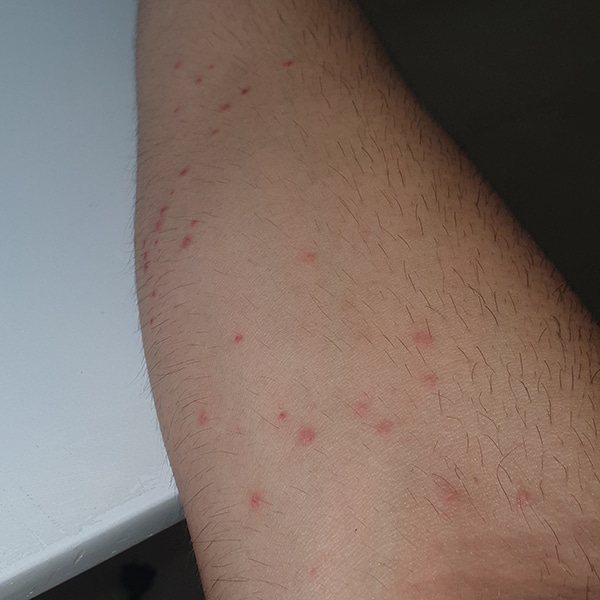
In the article
What Do Bed Bug Bites Look Like?
Bites look like small, itchy red marks on the skin with a dark puncture spot in the middle. The marks are in clusters, lines, or a zigzag pattern known as “breakfast, lunch, and dinner.”
Unlike other insect bites, they don’t have a central blister. Bites can be mistaken for mosquitos or flea bites. They can look like welts, hives, or fluid-filled blisters if you are allergic.
How Long For Bed Bug Bites To Appear
They can appear immediately or it may take a few days, or weeks for bed bug symptoms to appear. You may see poo spots on your skin near the bite because they poo straight after feeding. Bites can be anywhere on your body, although they usually bite your face, neck, arms, legs, shoulders and hands.
Bed bugs don’t feed every night. They usually feed every ten days, then moult. They can live for over a year without feeding, so moving out for a few months won’t kill them. Not everyone reacts to the bites, which is an issue because they will multiply quickly if untreated.
Pictures of Bedbug Bites
Click on the image gallery below to enlarge the images.
Bed Bug Bite Symptoms
- Itchy Red Spots: You might see red, itchy spots on your skin. They can show up right away or after a few days or weeks.
- Sneaky Bites: They are tricky because they numb your skin before they bite. This means you don’t feel it when they bite you. Some very sensitive people might feel the bites if they’re awake. Lots of people (more than 30%) don’t even react to the bites.
- Hot Feeling: Some people feel a hot, burning sensation after getting bitten.
- Feeling Worried: They can make you feel scared and anxious. Their bites can make you itchy and cause you to lose sleep.
- Allergic Reactions: This is rare, but some people can have an allergic reaction to bedbug bites. This can include a bed bug rash, hives, asthma, or even a serious reaction called anaphylaxis.
Get emergency help if you notice:
- Severe hives (really itchy, bumpy skin)
- Trouble breathing
- Wheezing or swelling in your throat or mouth
- Fever and chills
- Feeling dizzy or nauseous
- Confusion
- Skin infection
How To Treat Bed Bugs Bites?
Bedbug bites get better on their own. Here are some bed bug rash treatment options you can try:
- Apply an over-the-counter (OTC) or prescription cream to stop itching.
- Take an antihistamine to reduce itching.
- Take an over-the-counter pain killer to relieve swelling and pain.
- Take Benadryl before sleeping or see a doctor for a prescription.
In addition to OTC medications, several home treatments may help relieve symptoms. Try applying the following:
- a cold cloth or ice pack
- baking soda and water
Most of the time, bedbug bites don’t require medical attention.
Treating Bedbug Bites on Babies
Babies have delicate skin, so treating bedbug bites requires extra care. Here’s what you can do to help your baby feel better:
- Gentle Cleaning: Wash the bites gently with soap and water to keep them clean.
- Anti-Itch Cream: Put a small amount of safe anti-itch cream on the bites. Make sure to ask the baby’s doctor which cream is best.
- Cool Compress: Place a cool, damp cloth on the bites to reduce swelling and itching.
- Keep Nails Short: To prevent infections, keep the baby’s nails short so they don’t scratch the bites.
- Watch for Allergic Reactions: Call the doctor immediately if the baby shows any signs of an allergic reaction, like swelling or trouble breathing.
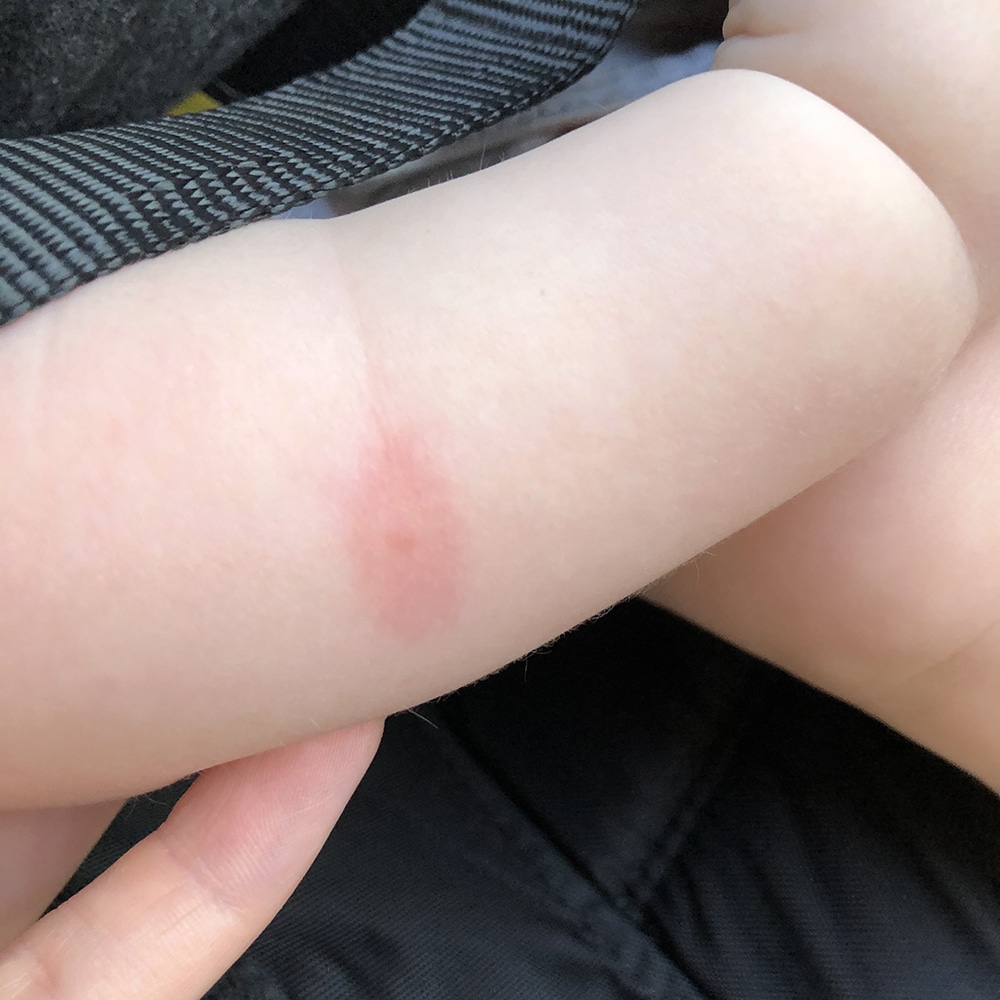
Bite On Baby
Bedbug Bites Vs. Other Insect Bites
Distinguishing bedbug bites from other insect bites involves observing the bite pattern and location:
- Bed Bug Bites: Typically found on exposed skin areas in clusters or lines.
- Mosquito Bites: Usually appear as single, isolated bumps.
- Flea bites: Often found around the ankles and legs, presenting as small, red bumps.
- Spider Bites: May cause a raised, red bump with a central puncture mark and sometimes more severe reactions.
- Carpet Beetles: The rash is caused by the larve touching the skin.
- Bird Mites: Cause severe itching, swelling and raised reddish spots.
- Scabies: Parasites that feed and live under your skin, causing raised fluid-filled bumps.
- Medical Conditions: Autoimmune diseases can cause a variety of skin rashes, as they involve the immune system mistakenly attacking itself.
- Dust Mites: Dust mite skin reactions typically appear as red, itchy bumps or rashes on the skin. These reactions can resemble eczema or dermatitis.
Bedbugs Bites On Pets:
Signs include:
- Itching and scratching: Pets may scratch excessively at the bites.
- Red bumps: Visible on areas with less fur, like the belly or inside of the legs.
- Restlessness: Pets may become more agitated and restless due to the discomfort.
What Do Bed Bugs Look Like?
Bed bugs are small, oval shaped, brownish insects that feed on human blood or animals. Fully grown adults are the size of an apple seed (5mm). They have six legs and two antennas. They have flat bodies, but after feeding, they swell and turn dark red. Nymphs (babies) are smaller (1mm) and translucent yellow until they feed.
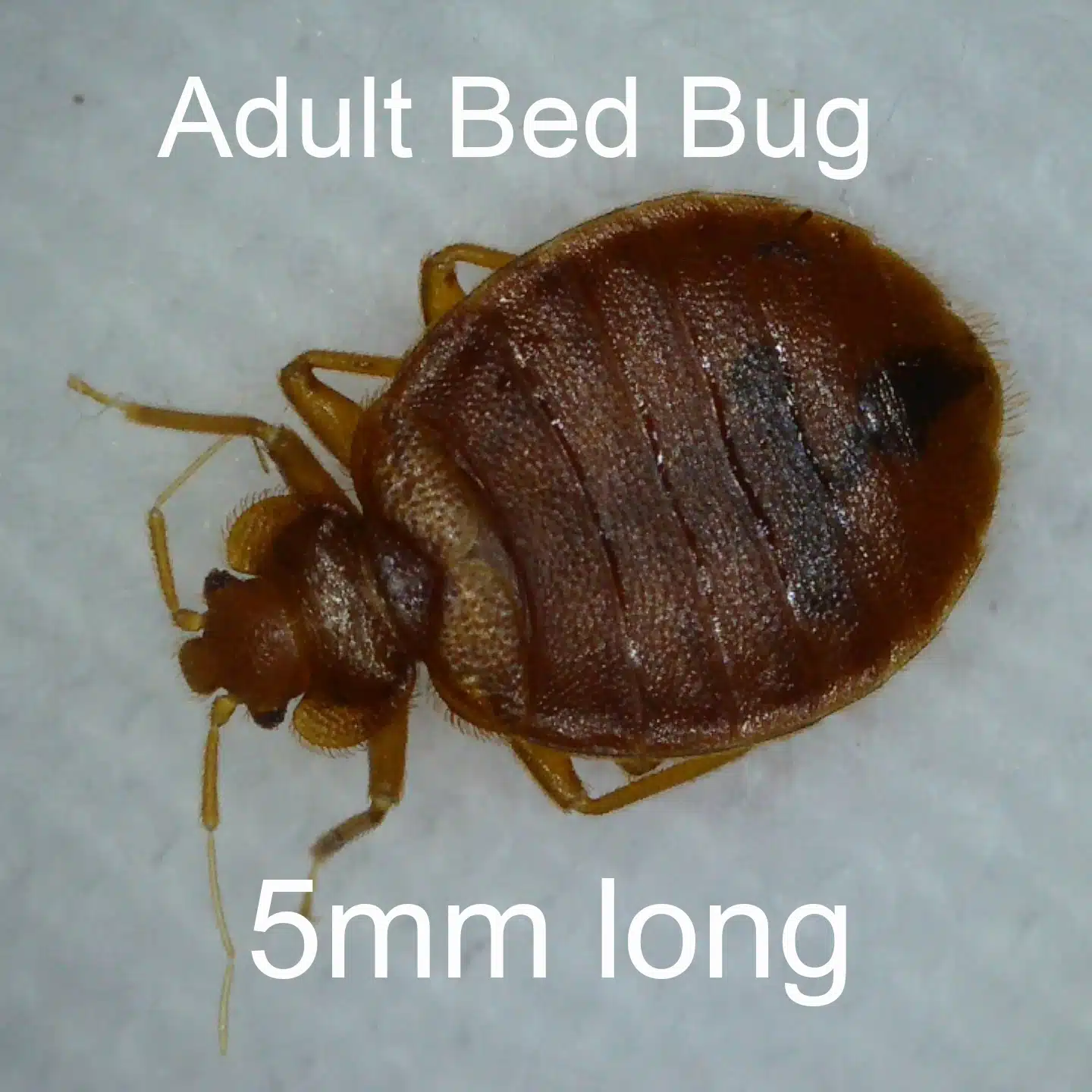
Bed Bug Size
Signs Of An Infestation
If you find any signs of an infestation, such as small brown spots (fecal matter), blood spots (squashed bugs), exoskeletons (shed skins), a sweet musty odour, or live or dead ones, it’s important to address the issue promptly, as they can spread quickly. Here are 8 photos to help you identify an infestation quickly.
Photos Of Where They Hide
Click on image to enlarge
How To Get Rid Of A Bed Bug Infestation
If you think you have bedbugs, don’t panic because they are very easy to get rid of.
Follow these easy steps to get rid of them fast and forever.
How To Get Rid Of Them On A Bed Frame
- Cover your sleeping mattress with a bedbug cover.
- Use a bedbug steamer to kill them in cracks and crevices instantly.
- Dust the entire bed frame with Diatomaceous Earth (Bedbug Powder)
- Place bedbug traps on the bed legs
- Keep your bed at least 30cm away from walls and other furniture.
How To Get Rid Of Them On An Ensemble Bed
- Cover your mattress and base with a mattress cover.
- Place bedbug traps on the bed legs and dust with Diatomaceous Earth (DE powder)
- Keep your bed at least 30cm away from walls and other furniture.
Following these steps will ensure they are effectively eliminated from your bed and room, allowing you to sleep peacefully, knowing you’re protected.
How to Prevent Bed Bugs
Here are seven important tips to keep them away:
Check Hotel Mattresses:
- Look for small blood spots, dark stains, and live bugs on the mattress.
After Travelling:
- Wash all your clothes in hot water.
- Disinfect your luggage.
- For items that can’t be washed, seal them in a plastic bag and freeze for four days.
Avoid Second-Hand Furniture:
- Don’t buy second-hand upholstered furniture or mattresses as they might be infested.
Use Diatomaceous Earth (DE):
- Sprinkle DE powder around power points and electrical outlets to keep bedbugs from entering your home.
- If using a pest control company, ask them to use DE.
- Apply DE to your bed frame; it keeps killing them as long as it’s not removed.
Travelling Guests:
- Wash their clothes in hot, soapy water.
- Disinfect their luggage.
New Housemates:
- Wash their clothes in hot water.
- Vacuum their luggage to ensure they dont enter your home.
Conclusion
Understanding how to deal with them is important for maintaining a healthy and comfortable living environment.
You can manage and prevent a bed bug infestation by knowing what bites look like, recognizing bed bugs symptoms, and employing effective treatment methods. Always be proactive in inspecting and maintaining your home to keep these persistent pests at bay.
If you have enjoyed this blog you may also like to read about bed bug allergies.
Frequently Asked Questions:
- How Do You Know If Bites Are From Bedbugs?
Bites often appear in clusters or lines on your face, neck, arms, and hands. They cause redness, swelling, and itching. Waking up with new bites and finding rust-coloured stains on bedding or small, brown bugs are strong indicators of bedbugs. - What Do They Look Like in Australia?
Bites in Australia are small, red, raised bumps that may form clusters or zigzag patterns. Reactions vary from minimal bed bug symptoms to large welts or blisters, often causing intense itching and inflammation. - What Is the Most Common Spot for Bedbug Bites?
Common spots include the arms, hands, neck, shoulders, and face. They target exposed skin during sleep, attracted by body heat and carbon dioxide. Keeping a clean sleeping environment and using protective barriers can help reduce bites.
Sources:
Medical News Today ( Everything you need to know), Health Vic (pest control), Health Harvard (invasion)
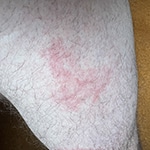
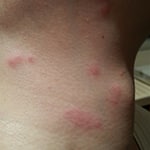
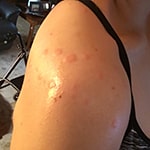
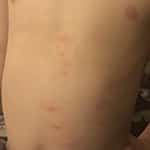
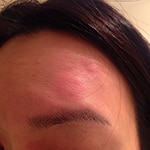
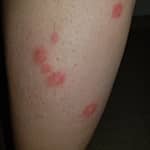
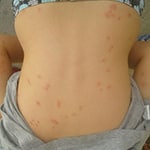
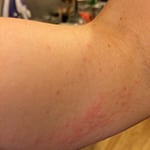
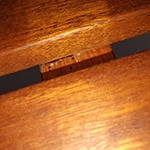

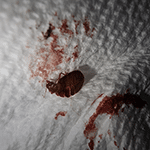

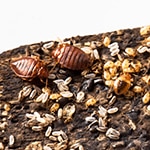
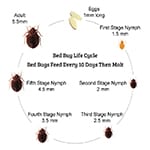
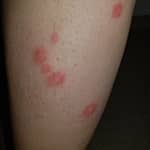
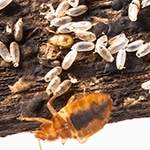



Leave a Reply